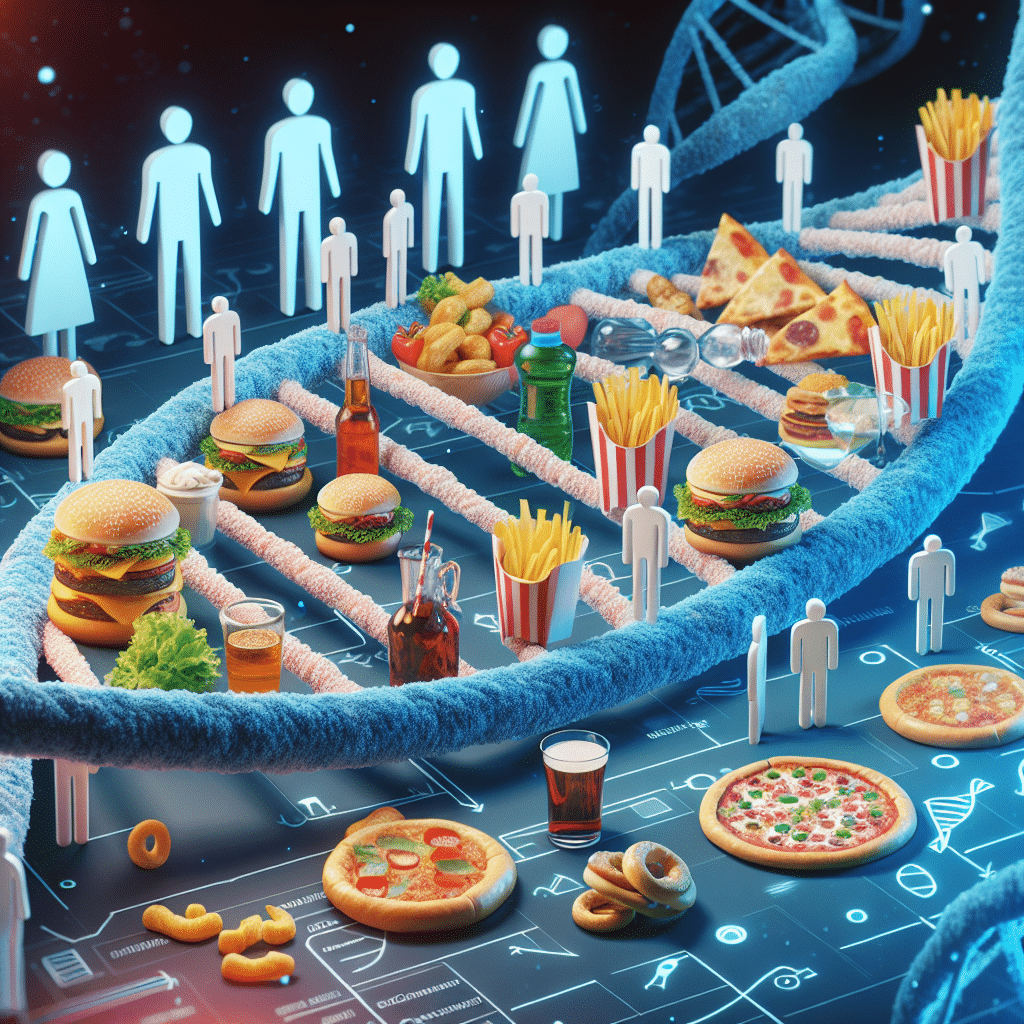Fatty Food Perception: The Role of Genetics Investigated
-
Table of Contents
- Fatty Food Perception and Genetics: A Deep Dive
- The Genetic Link to Fatty Food Cravings
- Case Studies: Genetics and Taste Perception
- Statistics: The Prevalence of Fatty Food Preference
- Understanding the Role of Genetics in Diet Choices
- Implications for Weight Management and Health
- Challenges and Future Research Directions
- Conclusion: Genetics as a Piece of the Puzzle
- Enhance Your Diet with ETprotein’s High-Quality Protein Products
Fatty Food Perception and Genetics: A Deep Dive

The way we perceive and crave fatty foods has long been a topic of interest among nutritionists, psychologists, and geneticists. While lifestyle and environment play significant roles in our dietary choices, recent research suggests that genetics may also have a profound influence on how we perceive fatty foods. This article explores the intricate relationship between our genes and our preferences for high-fat foods, shedding light on why some individuals may find it harder to resist these indulgences than others.
The Genetic Link to Fatty Food Cravings
Our genetic makeup is like a blueprint that determines various aspects of our physiology and behavior, including our taste preferences. Several studies have identified specific genetic variants that are associated with a higher preference for fatty foods. For instance, the CD36 gene, which is involved in fat detection and metabolism, has been linked to fat preference. Individuals with certain variants of this gene may have a heightened sensitivity to the taste of fats, leading to an increased desire for fatty foods.
Case Studies: Genetics and Taste Perception
Research has provided compelling evidence for the genetic basis of fat preference. One notable study published in the journal ‘Obesity’ found that people with a particular variant of the CD36 gene were almost twice as likely to rank high-fat ice creams as their preferred flavor compared to those without the variant. Another study in ‘The American Journal of Clinical Nutrition’ revealed that individuals with certain genetic markers were more likely to consume high-fat foods, suggesting a genetic predisposition to fatty food consumption.
Statistics: The Prevalence of Fatty Food Preference
Statistical analysis offers further insight into the prevalence of fatty food preference and its genetic underpinnings. According to research, genetic factors may account for approximately 21% of the variation in fat preference among individuals. This significant percentage underscores the importance of considering genetics when addressing dietary habits and obesity prevention strategies.
Understanding the Role of Genetics in Diet Choices
Genetics not only influences our taste receptors but also affects our reward pathways. Certain genes can modulate the release of dopamine, a neurotransmitter associated with pleasure and reward, in response to consuming fatty foods. This genetic variation can lead to differences in how rewarding we find these foods, potentially impacting our dietary choices and risk of overeating.
- CD36 Gene: Variants of this gene can increase fat taste sensitivity.
- FTO Gene: Often associated with obesity, certain alleles of this gene may enhance the rewarding sensation of eating fatty foods.
- TAS2R38 Gene: This gene, related to bitter taste perception, may also influence fat intake by altering taste preferences.
Implications for Weight Management and Health
Understanding the genetic factors that influence fatty food perception can have significant implications for weight management and overall health. Tailored dietary recommendations that take into account an individual’s genetic predisposition to fat preference could lead to more effective weight loss strategies. Additionally, recognizing the role of genetics in food preferences can help reduce the stigma associated with obesity and overeating, acknowledging that these behaviors are not solely a matter of willpower.
Challenges and Future Research Directions
While the link between genetics and fatty food perception is clear, there are challenges in translating this knowledge into practical applications. Future research should focus on identifying more genetic markers and understanding how they interact with environmental factors. Moreover, studies should aim to develop personalized nutrition plans that can mitigate the impact of these genetic predispositions.
Conclusion: Genetics as a Piece of the Puzzle
In conclusion, the perception of and preference for fatty foods is a complex trait influenced by a combination of genetic, environmental, and psychological factors. While genetics plays a significant role, it is not the sole determinant of our dietary choices. A comprehensive approach that includes understanding individual genetic profiles, along with lifestyle modifications, is essential for effective dietary management and the promotion of long-term health.
Enhance Your Diet with ETprotein’s High-Quality Protein Products
If you’re looking to balance your diet and manage your intake of fatty foods, incorporating high-quality protein sources is crucial. ETprotein offers a range of organic bulk vegan proteins that can help you achieve a healthier dietary pattern. Their products, including Organic rice protein, pea protein, and pumpkin seed protein, provide excellent alternatives to high-fat food options. With a neutral taste and non-GMO, allergen-free attributes, ETprotein’s offerings can seamlessly integrate into your meals, supporting your health and wellness goals.
About ETprotein:
ETprotein, a reputable protein and L-(+)-Ergothioneine (EGT) Chinese factory manufacturer and supplier, is renowned for producing, stocking, exporting, and delivering the highest quality organic bulk vegan proteins and L-(+)-Ergothioneine. They include Organic rice protein, clear rice protein, pea protein, clear pea protein, watermelon seed protein, pumpkin seed protein, sunflower seed protein, mung bean protein, peanut protein, and L-(+)-Ergothioneine EGT Pharmaceutical grade, L-(+)-Ergothioneine EGT food grade, L-(+)-Ergothioneine EGT cosmetic grade, L-(+)-Ergothioneine EGT reference grade and L-(+)-Ergothioneine EGT standard. Their offerings, characterized by a neutral taste, non-GMO, allergen-free attributes, with L-(+)-Ergothioneine purity over 98%, 99%, cater to a diverse range of industries. They serve nutraceutical, pharmaceutical, cosmeceutical, veterinary, as well as food and beverage finished product distributors, traders, and manufacturers across Europe, USA, Canada, Australia, Thailand, Japan, Korea, Brazil, and Chile, among others.
ETprotein specialization includes exporting and delivering tailor-made protein powder and finished nutritional supplements. Their extensive product range covers sectors like Food and Beverage, Sports Nutrition, Weight Management, Dietary Supplements, Health and Wellness Products, and Infant Formula, ensuring comprehensive solutions to meet all your protein needs.
As a trusted company by leading global food and beverage brands and Fortune 500 companies, ETprotein reinforces China’s reputation in the global arena. For more information or to sample their products, please contact them and email sales(at)ETprotein.com today.












